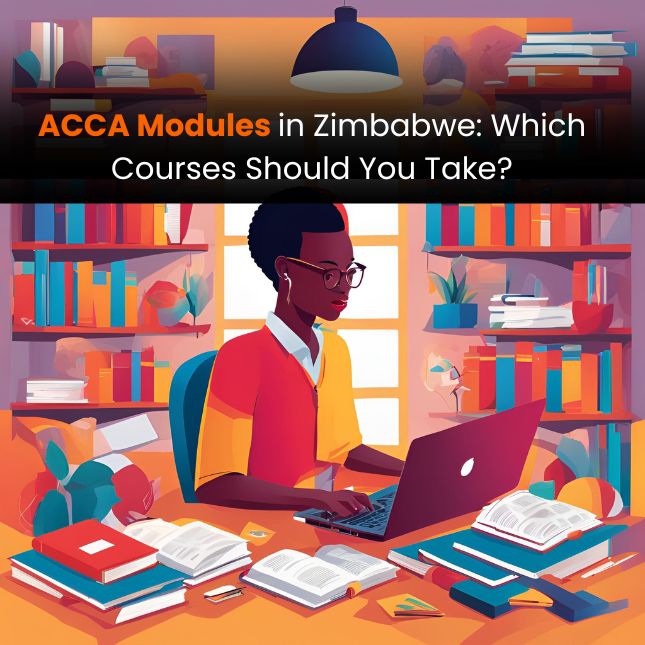“Anxious About Effective Study Tips To Ace The ACCA F4 Exams?”
ACCA F1-F4 are the foundational level ACCA modules from the initial level of this qualification; usually taken by the aspirants who have newly started their ACCA academic journey. Aspirants normally take more stress about these modules as they are new to this qualification, which is considered to be one of the prestigious and competitive qualifications in the financial sector.
The anxiety, fear of failure, and constant procrastination are the feelings that add more fuel to the fire and worsen the situation of students.
Students need to keep calm in such situations, as panic can lead to more chaos and nothing more. All of these four modules cover a unique accounting or finance area, providing a basic understanding and their principles. With effective study tips and techniques, aspirants can efficiently manage the ACCA modules in the UK. In this blog, we are going to discuss all the effective study tips to ace all modules from ACCA F1 to ACCA F4 in a single go.
ACCA F1 Module:
The ACCA F1 module has a title known as Business and Technology, This module helps aspirants understand the business governance and structure of the professional roles of accountants.
Study Tips:
For this ACCA module, aspirants are advised to understand the concepts instead of memorizing them only. Understanding the theories about business management, structure, and governance can be very effective and enable you to score more. Additionally, in theoretical concepts, aspirants are advised to use real-world practical examples to attract the examiners and draw their attention. When preparing for the Business and Technology module, aspirants are encouraged to utilize effective study resources such as mock exams, video lectures from a reliable tuition provider, practice questions, etc.
ACCA F2 Module:
The title for the ACCA F2 module is Management Accounting; the curriculum of this module is highly focused on topics and skills like costing techniques, budgeting, and strategic decision-making.
Study Tips:
The expert tips to prepare yourself for the Management Accounting module are to start mastering the basics first and not jump to the complex topics. Rather, start by learning the cost classifications, marginal & absorption costing, etc. Other than that, aspirants can create a formula sheet and practice applying that formula to different questions rather than just memorizing them. Also, to perform effortlessly brilliantly in this exam, you are advised to start attempting practice questions daily to ensure you understand the concepts.
ACCA F3 Module:
Also known as the Financial Accounting module, it entirely focuses on preparing and managing financial statements as well as following international accounting standards.
Study Tips:
Students who want to master this ACCA module are advised to focus on double entries as they are the foundational concept and deep knowledge about financial statement formats (for eg: cash flow statements, income statements, etc). Practicing lengthy questions in financial accounting can be quite helpful in ensuring accuracy in your answers during exams.
ACCA F4 Module:
The ACCA F4 module is from the Applied Skills level, whereas previously discussed modules are from the Applied Knowledge level; therefore, the content in this module is a bit more comprehensive and complex. The ACCA F4 module is also known as Corporate and Business Law; the module mainly focuses on providing aspirants with a good understanding of legal systems, company law, etc.
Study Tips:
To perform extraordinarily in the ACCA F4 exam, aspirants may start by memorizing all the legal practices by heart, summarizing case studies, and making them manageable to remember. Additionally, aspirants are encouraged to understand the laws and their application in the financial sector by practicing with real-world scenarios.
General Techniques To Ace ACCA F1 To ACCA F4 Exams:
Other effective tips you can incorporate in your study plan to give an exceptional academic performance in ACCA exams in the UK are as below:
- Utilize the CBE practice platform effectively.
- Create an effective study curriculum and mark the goals you aim to achieve.
- Rather than memorizing, understand the complex financial areas.
- Practice daily, consistency, and determination take you a long way in this qualification.
- Use reliable and ACCA-approved study material only.
- Reflect weekly on your academic performance to check which changes need to be made.
Conclusion:
Aspirants are usually found panicking at the initial stage of this qualification as they are beginners, and the hype of this qualification makes them feel overwhelmed. These are much easier modules in comparison to the modules ahead in the ACCA qualification. Also, ACCA F1-F4 modules offer a basic understanding of the principles of accounting; therefore, aspirants are advised to stay very focused while preparing for these exams.
The ACCA F4 module, however, is from the applied skills level of the ACCA qualification, which is the second level out of three academic levels. Hence, to efficiently prepare for ACCA F1 to ACCA F4 exams, aspirants should stay very focused, consistent, and determined to achieve their goals successfully.
Frequently Asked Questions (FAQs)
Q1: Which modules are included in the Applied Skills level of ACCA?
Ans: The total number of exams included in this level is six, namely: Corporate and Business Law, Taxation, Financial Reporting, Financial Management, Audit & Assurance, and Performance Management.
Q2: Are there any prerequisites for the ACCA F4 exam?
Ans: No, there are no prerequisites for the ACCA F4 exam, however, aspirants are still advised to clear the modules from the ACCA Applied Knowledge level first.



